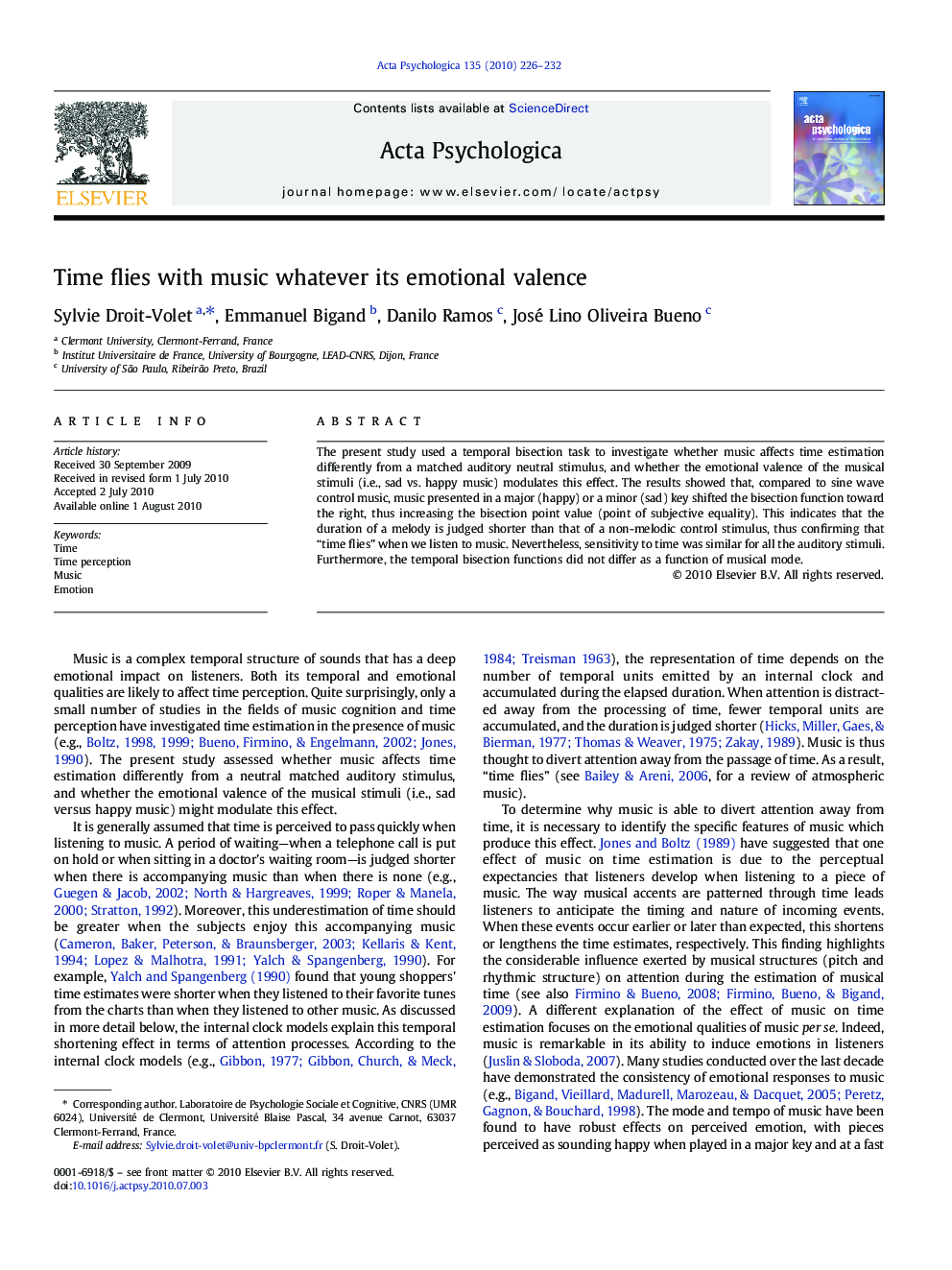| Article ID | Journal | Published Year | Pages | File Type |
|---|---|---|---|---|
| 920260 | Acta Psychologica | 2010 | 7 Pages |
The present study used a temporal bisection task to investigate whether music affects time estimation differently from a matched auditory neutral stimulus, and whether the emotional valence of the musical stimuli (i.e., sad vs. happy music) modulates this effect. The results showed that, compared to sine wave control music, music presented in a major (happy) or a minor (sad) key shifted the bisection function toward the right, thus increasing the bisection point value (point of subjective equality). This indicates that the duration of a melody is judged shorter than that of a non-melodic control stimulus, thus confirming that “time flies” when we listen to music. Nevertheless, sensitivity to time was similar for all the auditory stimuli. Furthermore, the temporal bisection functions did not differ as a function of musical mode.
